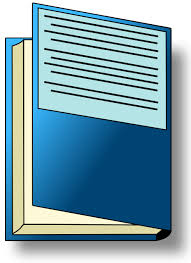
As a kid, I can remember reading the backs and sides of cereal boxes as I chomped down unhealthy bowls of sugar-laced cereal (thank you, Kellogg’s and Post!). Nowadays, I do the same for books that are lying around—even after I’ve finished reading them.
You know what THAT means. It means I read the equivalent of sugar-laced ingredients on the backs of poetry books: blurbs. Only if you dig a little do you often learn that blurbs are written by a poet’s teachers or fellow university workers or fellow alums.
But what else is new? You scratch my back, I scratch yours, and why not? What really gets you is the similarity of so many blurbs, the way they are obviously a pain in the neck to the person who was asked to WRITE them.
This can be discovered by the simple formula known as A=#Ls (Aggravation = the Number of “Luminous’s”). If your blurbs are so luminous they glow gaudily like Christmas lights on a July night, your book is as sweet a Tony Tiger’s Sugar-Frosted Flakes.
Nowhere is this worse than in a poetry book that actually uses the word “luminous” in its title. I give you Czeslaw Milosz’s A Book of Luminous Things. As you might expect, the blurb from The Houston Chronicle on the back reads, “A luminous anthology about luminous thoughts and things.”
Hoo, boy. Houston, we have a problem.
Other words we need to watch out for: “stunning,” “rare,” “unforgettable,” “breathtaking,” “fierce,” “remarkable,” “memorable,” “profound,” “arresting,” “evocative,” and, of course, “beauty” and “achievement.” For example:
“Jane Hirshfield is one of our finest, most memorable contemporary poets.” — David Baker
“Scrupulously attentive, rigorously self-questioning, What the Living Do is an achievement of remarkable power.” — Mark Doty
“The landscape of Tranströmer’s poetry… is mirrored by his direct, plain-speaking style and arresting, unforgettable images.” — Robin Robertson
“Tomasz Rozycki’s Colonies is one of the most remarkable sonnet sequences of our time…” — Susan Stewart
“Another breathtaking collection…” — Booklist
“I’m stunned by the power of these poems…” — Marie Howe
Pity the blurb writer, asked by a friend or colleague to compose a blurb using a Blurb Dictionary of Words that is only three pages long. Talk about a challenge!
Why not dispense with blurbs entirely, then? Why not let the reader (or shopper in a bookstore) consider each work a tabula rasa? As a teacher, I prefer not hearing the previous grade’s teachers’ thoughts on any given student. I prefer to arrive at my own conclusions. See me for a blurb in October, in other words–one written by me.
Wouldn’t this be a luminous way of doing things? Stunningly fierce and fair? A memorably profound shift in how things are done in the publishing world?
Be remarkable. Say yes.